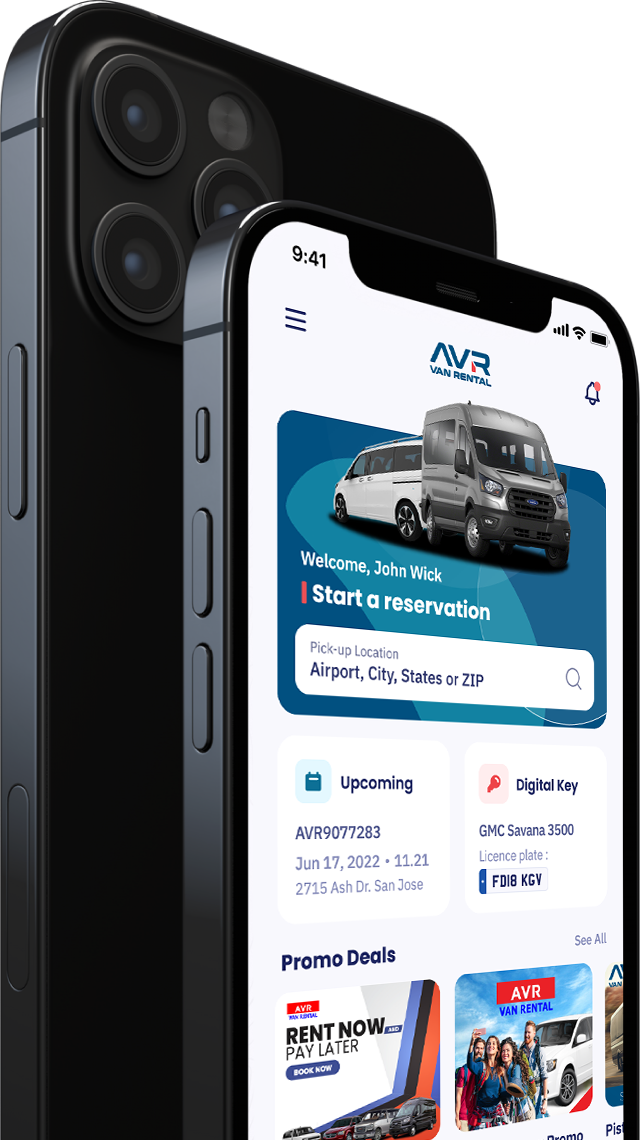
Where to Charge Your Electric Rental Car
Did you know the sales of light-duty plug-in electric vehicles doubled from 308,000 in 2020 to 608,000 in 2021 in the United States?
The demand for electric vehicles (EVs) has been rising steadily over the past few years due to factors such as the expanded footprint of charging infrastructure and increased fuel prices.
Car rental companies have started offering electric vehicles for shorter-duration trips to help travelers enjoy an efficient, low-emission, and eco-friendly driving experience at the best rental rates possible.
Though renters have started booking EVs for their road trips, family vacations, and weekend getaways, they are still concerned about not having a sufficient number of fast charging stations in the country. Their concern is valid because the United States has only 6,000 Direct Current (DC) fast electric charging stations compared to 150,000 gas stations.
To help ease these concerns, we developed this guide providing all the basic information about charging your rental electric car.
Where Should You Charge Your Electric Car?
Charging an electric car isn’t a tiring experience anymore. Since there are a lot of fast charging adaptors available at public stations and workplace stations, you can quickly charge your rental electric car and unleash the pleasure of your vacation journey.
Public Charging Stations
The United States has over 122,000 charging ports, including Level 2 and DC fast-charging connectors, across the 48,000 EV charging locations. The U.S. House of Representatives recently passed a $1.2 trillion infrastructure bill, of which the government is going to spend $7.5 billion to build a network of 500,000 charging stations by 2030.
The electric vehicle charging rates at public stations may vary from one state to another. For instance, you would pay around 30 cents per kWh (kilowatt-hour) on Level 2 charging ports in California. However, the DC fast-charging ports may charge you around 40 cents per kWh.
If you are renting a car for road trips or family vacations, you can keep a note of the available public chargers on your way and use DC fast charging ports to charge your car quickly.
Workplace Stations
Many medium to large-scale organizations have electric charging infrastructure in their parking lots. If you are renting a car for business purposes, you can use these workplace charging stations to charge your car. Make sure you check with the concerned team if there are any DC fast-charging stations. Most workplaces don’t opt for DC fast-charging stations as they are expensive to install and maintain. If your organization has only Level 1 and Level 2 charging ports, you should plan your car charging in advance.
Home Charging
Today, many residential homes installed EV charging systems in their parking garages. If your home has an EV charging port, you can use it to charge your rental car. However, this may not be always possible if you are renting a car for long vacation trips.
How Long Does It Take to Charge an Electric Car?
Various factors, including the power source, battery size, charge level, and weather, will influence the charging speeds of an EV battery.
Power Source
The power sources for EVs may be classified into Level 3, Level 2, and Level 1.
Level 3 or DC Fast Chargers: Most DC fast charging stations take between 15 and 45 minutes to charge 80% of the EV battery. For instance, a Tesla supercharger can charge your car up to 200 miles in 15 minutes.
Level 2: If you use Level 2 (240-volt circuit) charging ports, it may take about six to eight hours to charge an EV battery fully.
Level 3: The Level 3 (120-volt circuit) charger may take up to 12 hours to fully charge an EV battery.
Battery and Charger Capacity
Today, EV battery sizes range from a mere 17 kWh to 100 kWh. For instance, the Smart EQ ForTwo, an electric two-seater car, has a 17 kWh capacity battery with a range of 58 miles. On the other hand, Tesla vehicles such as Model S and Model X have 100 kWh batteries with 300 miles of range.
The charging time increases significantly If you use a low-capacity charger for a higher-capacity battery. For instance, if you use a 10 kW charger for a 100 kWh battery, it may take about 10 hours to reach the maximum level.
Charge level
An EV battery typically takes less time to charge from 0% to 80% than it does from 80% to 100%. It means EV batteries charge up quickly at lower charge levels. So the existing charge level will also influence how much time a battery takes to reach its maximum level.
Weather
EV batteries take longer to replenish in cold weather compared to warm and humid weather conditions. If you are driving an electric vehicle in cities such as Fargo, Maine, Vermont, Montana, and Wyoming, you may experience slow battery charging.
Tips for Charging Your Electric Rental Car
To make your electric car charging hassle-free, we have provided a few EV-battery charging tips below.
Find Charging Stations in Advance
If you are planning long-distance journeys such as road trips or family vacations, you should make a note of all the available EV charging stations on your route ahead of time.
The following steps may help you plan your trip effectively:
At the start of the journey, check how much battery you have and how long it lasts.
Search for available EV charger points within the 50 miles stretch where you feel you may need to recharge the battery.
Replenish the battery before it reaches 25% capacity.
These steps will ensure you don’t run out of battery before reaching an EV charging station.
Keep Your Car Cool
Hot temperatures drain your EV battery quickly. Furthermore, it results in overheating issues. To avoid the frightening consequences of overheating, make sure to find a shady spot while parking the vehicle.
Avoid Over- or Under-Charging
The State of Charge (SOC) for EV batteries is between 30% and 80%. You should replenish your EV battery immediately if it goes below the 30% capacity level. For longevity, automakers recommend terminating the charging when the EV battery hits 80 to 85% of its capacity.
Achieve Outstanding Fuel Efficiency with AVR Rentals
Vacationing in a rental electric car can be an awesome experience if you pre-plan your journey, make a note of EV charge points on your route ahead of time, and replenish the battery before it falls below 25%.
Airport Van Rental (AVR) is an emerging van rental company operating with a mission of making your rental experience fast, easy, and affordable. With our premium fleet of SUVs, minivans, passenger vans, and electric vehicles, we will be able to cater to all kinds of your travel needs. No matter if you are planning a road trip, weekend getaway, or adventure trip, we have a suitable vehicle for you.
The following service characteristics make AVR a preferred rental service provider:
24/7 contactless pick-up
After-hours premier customer support
Well-maintained vehicles
Amenities and extras
Industry-leading cleaning services
Special coupons, rebates, incentives, and discounts for AAA and USAA members
Pay Now Scheme that reduces the rental amount by up to 30%.
Book a van from AVR with your debit or credit card at the best rental rate to achieve outstanding fuel efficiency.
AVR Van Rental
Book with confidence, we have your back.
Follow Us On



Copyright @ 2025 Airport Van Rental
Locations
Colorado
Florida
Georgia
Nevada





